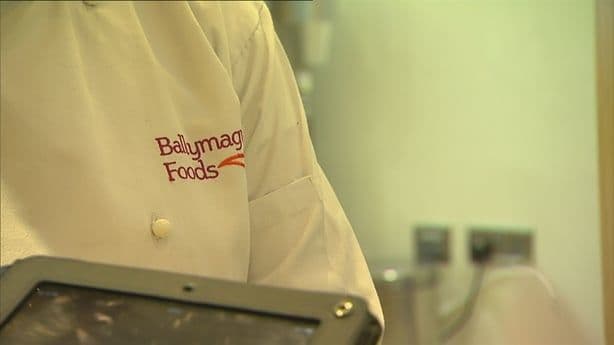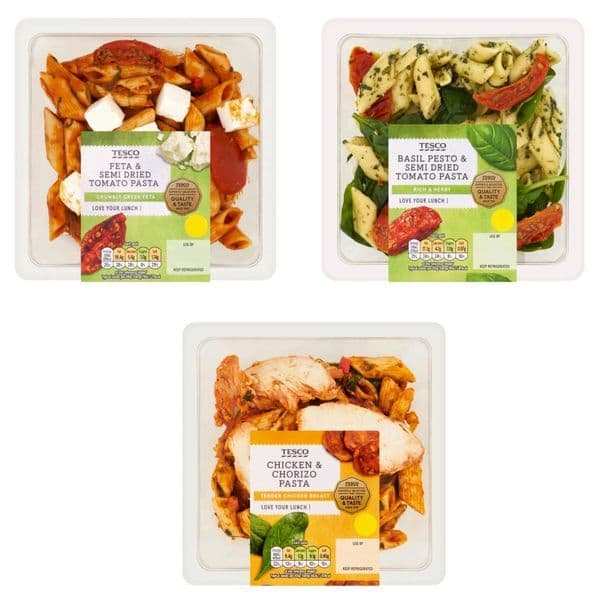The Unseen Threat in Your Supper: Unpacking Ireland's Ready Meal Crisis
Explore Ireland's widespread ready meal recall. Unpack the silent Listeria threat, private label complexities, and crucial food safety steps for consumer protection.

Ireland's Plate Under Scrutiny: The Immediate Fallout
A shadow has fallen over Ireland's dinner tables, as a widespread recall of popular ready meals sends ripples of concern across the nation. The initiated this urgent action following fears of contamination by Listeria monocytogenes, a harmful bacterium. This isn't merely a precautionary measure; it stems from a grave reality: an adult has tragically died with a confirmed listeria infection, and nine other cases have been identified. The of the is actively investigating this fatality, underscoring the severity of the situation. Consumers, accustomed to the convenience of pre-prepared meals, now find their supper under intense scrutiny. Brands synonymous with ease and quality, including , , , , and range, are all implicated. The common thread among these diverse brands? They were all produced by . Over 200 different products, from comforting cottage pies and chicken curries to various side dishes like mashed potato and turnip, have been pulled from shelves. The immediate advice is clear and stark: do not eat any of these affected products, and check your freezers immediately for any lurking dangers.
Listeria's Silent Path: Understanding the Invisible Threat
The culprit behind this unsettling recall, Listeria monocytogenes, is a formidable and often unseen adversary in food safety. Unlike some bacteria that cause immediate, obvious spoilage, Listeria can thrive even in refrigerated environments, quietly multiplying on ready-to-eat foods. This insidious nature makes it particularly dangerous, as consumers might unknowingly consume contaminated products without any sensory cues. While healthy individuals might experience mild, flu-like symptoms, the threat escalates dramatically for vulnerable populations. Pregnant women, the elderly, and those with weakened immune systems face severe risks, including meningitis, septicaemia, and even stillbirths. The current outbreak, which has tragically claimed a life and affected multiple individuals, underscores the critical challenge Listeria poses to the convenience food industry. It highlights the constant vigilance required in food processing to prevent this hardy bacterium from entering the supply chain and making its silent, potentially fatal journey to our plates. The ongoing investigation by the is crucial to mapping this silent path and identifying where the contamination occurred.

Beyond the Supermarket Brand: Tracing the Food Chain
This widespread recall pulls back the curtain on a crucial, yet often unseen, aspect of our food system: the intricate web of private-label manufacturing. Many of us grab a '' or '' meal, assuming it's produced directly by that supermarket. However, this incident reveals that a single, less visible producer, , was the common source for a vast array of ready meals sold under numerous well-known retail brands across . This structural reality means a problem at one facility can cascade through the entire market, impacting multiple seemingly distinct brands simultaneously. has expressed deep apologies and initiated a "full precautionary recall" across all products from one of its facilities, acting swiftly upon identifying the bacteria during a quality control check. Their immediate engagement with the , , and retail partners, alongside a temporary suspension of production, demonstrates the critical role of the direct producer in managing such crises. It's a stark reminder that the journey of our food is far more complex than the brand name on the packaging might suggest, urging us to consider the unseen links in the chain.
Rebuilding Trust: Safeguarding Your Convenient Cuisine
Restoring consumer confidence after such a significant food safety breach is paramount, requiring robust action from all involved. swift response, including proactively identifying the issue, initiating a full recall, informing all retail partners, and temporarily suspending production at the affected facility, forms the bedrock of this effort. Their commitment to working closely with authorities and managing the situation responsibly is a crucial step in demonstrating accountability. On the regulatory front, the and , through the , are not just investigating; they are ensuring that all necessary measures are taken to contain the outbreak and prevent future occurrences. For consumers, the immediate practical advice is vital: check your fridge and freezer for any of the more than 200 implicated products and dispose of them without hesitation. Beyond this immediate action, the long-term rebuilding of trust hinges on enhanced transparency, stricter quality control measures throughout the supply chain, and clearer communication from both producers and retailers. It's about demonstrating an unwavering commitment to safety, ensuring that the convenience of ready meals never compromises the fundamental expectation of wholesome, safe food.
The Future of Fast Meals: A Post-Recall Landscape
This listeria recall isn't just a momentary disruption; it's a pivotal moment that could reshape the landscape of ready meal industry. What does this mean for the future of our convenient cuisine? Firstly, consumer perception will undoubtedly shift. While the allure of quick, easy meals remains strong, there will likely be heightened scrutiny and a demand for greater transparency regarding food origins and safety protocols. Will consumers begin to question the 'unseen' producers behind their favourite supermarket brands more actively? For the industry, this incident may trigger a re-evaluation of current practices. We could see a push for even more rigorous internal quality control checks, more frequent and comprehensive microbial testing, and perhaps even a move towards greater vertical integration or more direct oversight of third-party manufacturers. Regulators, too, might consider strengthening guidelines for ready-to-eat food production, potentially leading to new auditing standards or a more proactive approach to risk assessment. The challenge for food producers will be to innovate in ways that prioritize safety and traceability without sacrificing the convenience and affordability that make ready meals so popular. Ultimately, this recall serves as a potent reminder that while convenience is appealing, the integrity and safety of our food must always be non-negotiable.
Related Articles

From Pantry Staple to Public Hazard: The Unseen Vulnerabilities Behind the Tuna Recall

From Pantry Staple to Public Hazard: The Unseen Vulnerabilities Behind the Tuna Recall

When Dinner Delivers Danger: Inside the World of Food Safety Alerts

When Dinner Delivers Danger: Inside the World of Food Safety Alerts

Beyond the Pasta: Unpacking the Hidden Layers of Supermarket Food Recalls

Beyond the Pasta: Unpacking the Hidden Layers of Supermarket Food Recalls

More Than Just a Recall: Unpacking the Wiltmann Salami Incident's Broader Implications
